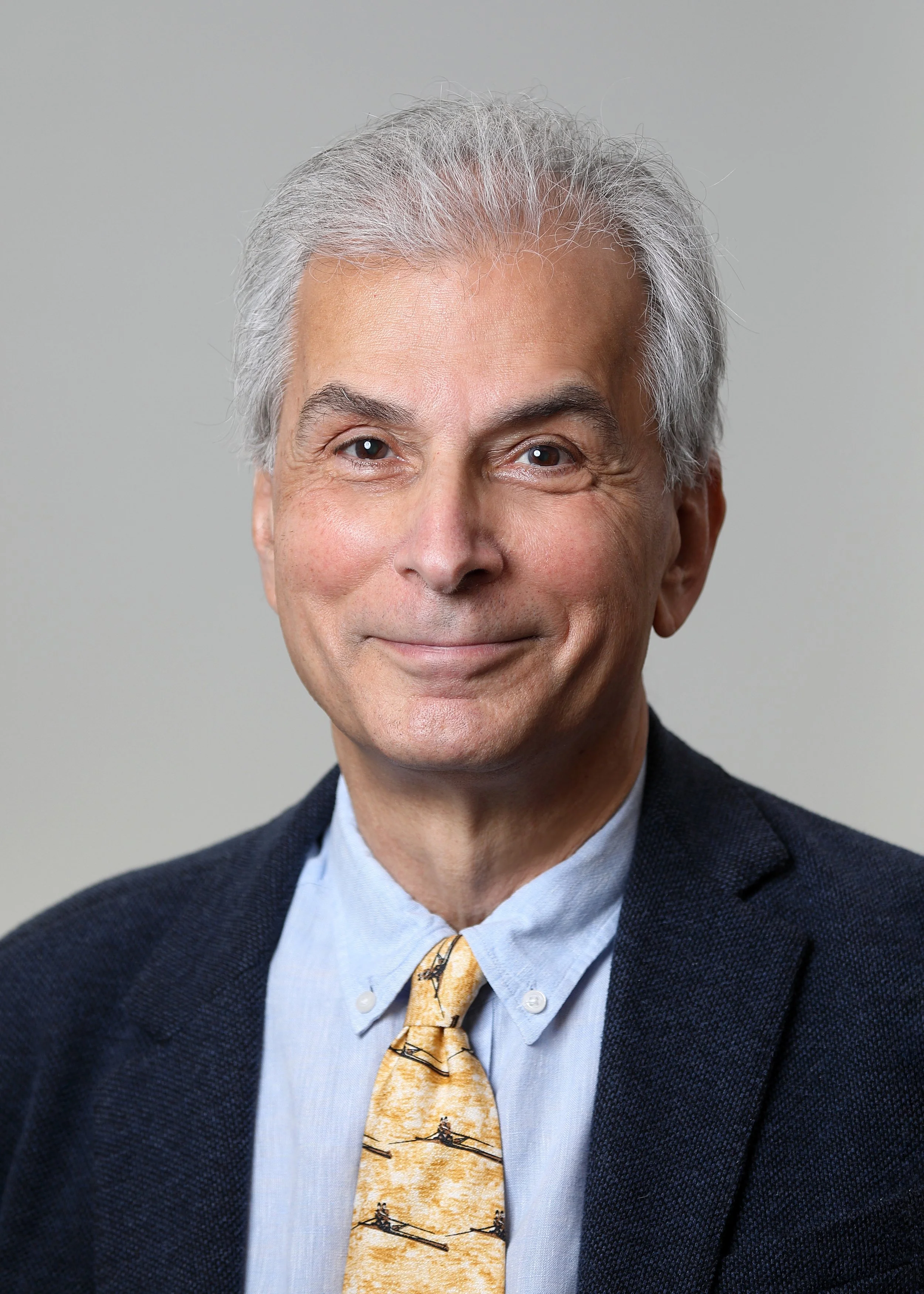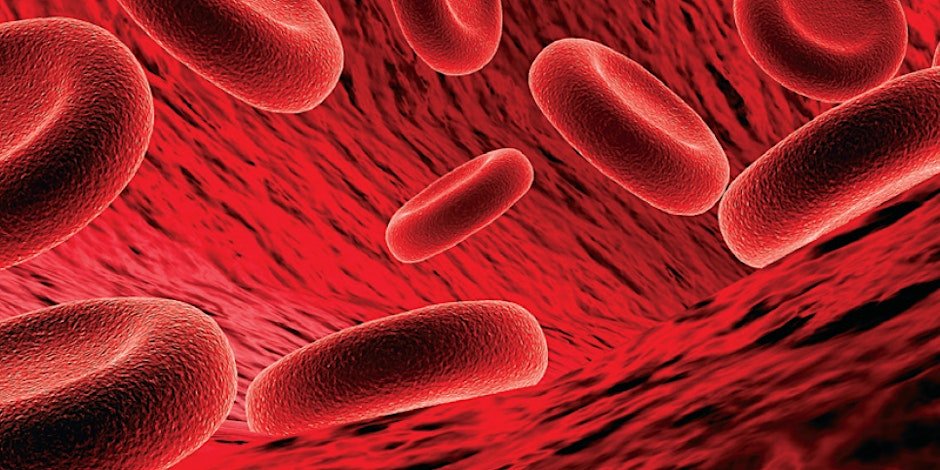
Speakers
-
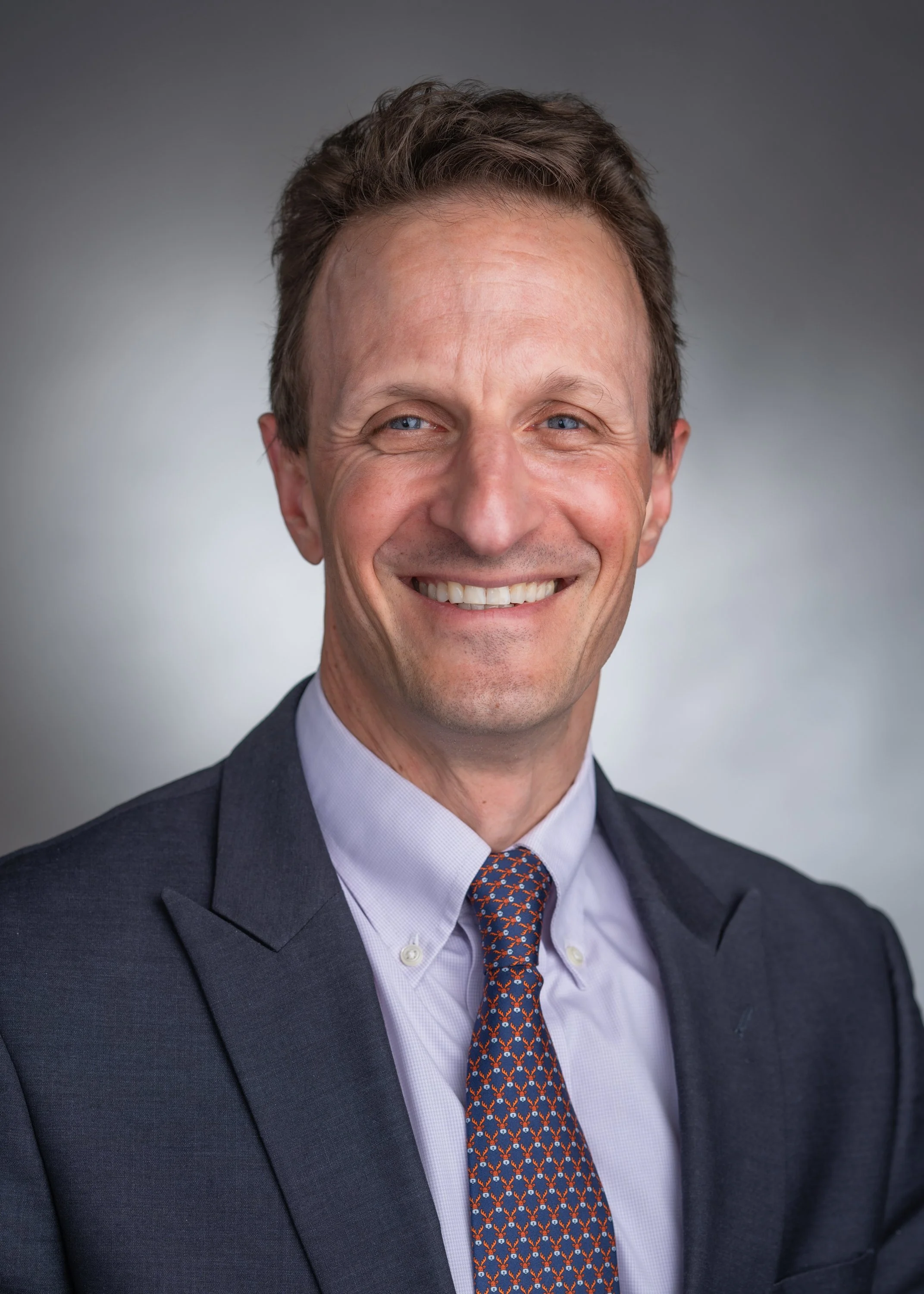
Dr. Philippe Armand
Philippe Armand obtained his MD and PhD from the University of California San Francisco. He completed a residency in Internal Medicine at Brigham and Women’s Hospital in 2004, and a fellowship in Hematology/Oncology at Dana-Farber Cancer Institute (DFCI) in 2007. Since then, he has worked in the Department of Medical Oncology at DFCI. He is currently a Professor of Medicine at Harvard Medical School, the Harold and Virginia Lash/David Lash Chair in Lymphoma Research, and the Chief of the Division of Lymphoma. His clinical practice is focused on patients with lymphoma and CLL. His research interests center on the development of novel therapeutics and assays in lymphoma, with a key focus on the translation of local laboratory research to novel clinical trials. He actively mentors many junior investigators, both fellows and junior faculty, in both clinical care and clinical research.
-

Dr. Prithviraj Bose
Dr. Prithviraj Bose is a professor and chief of the section of myeloproliferative neoplasms (MPNs) within the Department of Leukemia at the MD Anderson Cancer Center in Houston, TX. After obtaining his medical degree from the University of Calcutta in Kolkata, India, where he attended the Calcutta Medical College, Dr. Bose completed an internship in internal medicine at a University of Washington affiliate in Spokane, WA, and residency at the Henry Ford Hospital in Detroit, MI, followed by a fellowship in hematology and oncology at the University of Oklahoma Health Sciences Center in Oklahoma City, OK. He then went on to join the hematology/oncology faculty at Virginia Commonwealth University (VCU) in Richmond, VA, where he was an assistant professor of medicine and a member of the NCI-designated VCU Massey Cancer Center.
At the Department of Leukemia at MDACC, which he joined in early 2015, Dr. Bose’s major clinical and research focus is on MPNs. He has authored numerous articles on MPN topics in peer-reviewed journals and books and served on the MPN panel of the National Comprehensive Cancer Network for several years. Dr. Bose is also heavily involved in clinical trial design for patients with MPN, and also in other areas of MPN research. He is leading a number of important therapeutic clinical trials in myelofibrosis, essential thrombocythemia and systemic mastocytosis at MDACC. He speaks regularly on MPN topics at regional, national and international meetings, and co-chairs the annual US Focus meeting on MPNs and MDS.
Dr. Bose has published over 500 peer-reviewed journal articles, book chapters and scientific meeting abstracts. His work has appeared in The New England Journal of Medicine, Cancer Cell, Journal of Clinical Oncology, Blood, Leukemia, Haematologica, Clinical Infectious Diseases, Williams’ Hematology and the MD Anderson Manual of Medical Oncology. Additionally, Dr. Bose regularly reviews articles for numerous hematology journals, including The Lancet Hematology, Blood, Leukemia, Blood Advances, Haematologica, Hemasphere, British Journal of Haematology, American Journal of Hematology, Blood Cancer Journal, grant applications and abstracts for major international conferences such as ASH and EHA. He serves as an associate editor for Clinical Lymphoma Myeloma and Leukemia and as the editor in chief of Current Hematologic Malignancy Reports.
-

Dr. Morrie Gertz
Dr. Gertz is the Roland Seidler Jr. Professor of the Art of Medicine and Chair Emeritus of the Department of Internal Medicine, at Mayo Clinic in Rochester, Minnesota. He is a Master of the American College of Physicians. Undergraduate degree was awarded with highest distinction from Northwestern University graduating Phi Beta Kappa. Dr. Gertz received his medical degree cum laude from Loyola Medical School in Maywood, Illinois and was elected to Alpha Omega Alpha the medical honor society. He completed a 3-year medical residency at Rush Presbyterian St. Luke’s Hospital in Chicago, Illinois, and was voted Resident of the Year for 2 of those years. He completed training in hematology and oncology at Mayo. He was awarded the Mayo Distinguished Clinician Award for his contributions to patient care. He served 1 year term as president of the Mayo clinic staff officers and counselors. he has served as chair of the division of Hematology and chair of the department of Medicine at Mayo Clinic Rochester. He was the first treasurer of the International Society of Amyloidosis and International Myeloma Society. He has authored over 1000 peer reviewed publications and over 90 book chapters. He serves on the editorial boards of Amyloidosis, Acta Haematologica and Clinical Lymphoma & Myeloma. He is coeditor of Neoplastic Diseases of the Blood. In 2019 The Department of Medicine awarded him its lifetime research achievement award. In 2024 he became chair of the Hematology Board for the American Board of Internal Medicine.
-

Dr. David Porter
Dr. Porter is the Jodi Fisher-Horowitz Professor of Leukemia Care Excellence at the Perelman School of Medicine and Abramson Cancer Center, and the Director of the Center for Cell Therapy and Transplant at the University of Pennsylvania. He is also the co-director of Penn’s Colton Center of Excellence in Cell Therapy for Autoimmune Disease. Dr Porter chairs or serves on numerous local, national and international committees focused on hematologic malignancies, stem cell transplantation and cell therapy. He is a past Chair and emeritus member of the Board of Directors of the National Marrow Donor Program and currently serves as President of the American Society for Transplantation and Cellular Therapy. He is the Deputy Editor of Transplantation and Cellular Therapy and is an Associate Editor for the American Journal of Hematology. Dr. Porter is an accomplished clinical investigator with an extensive publication record and has been the primary or co-author of over 250 research and review articles. Among other research highlights, he participated in the early development of reduced intensity allogeneic SCT, novel studies to limit GVHD, and along with colleagues at the University of Pennsylvania has pioneered the successful development of CAR T cells for cancer.
-
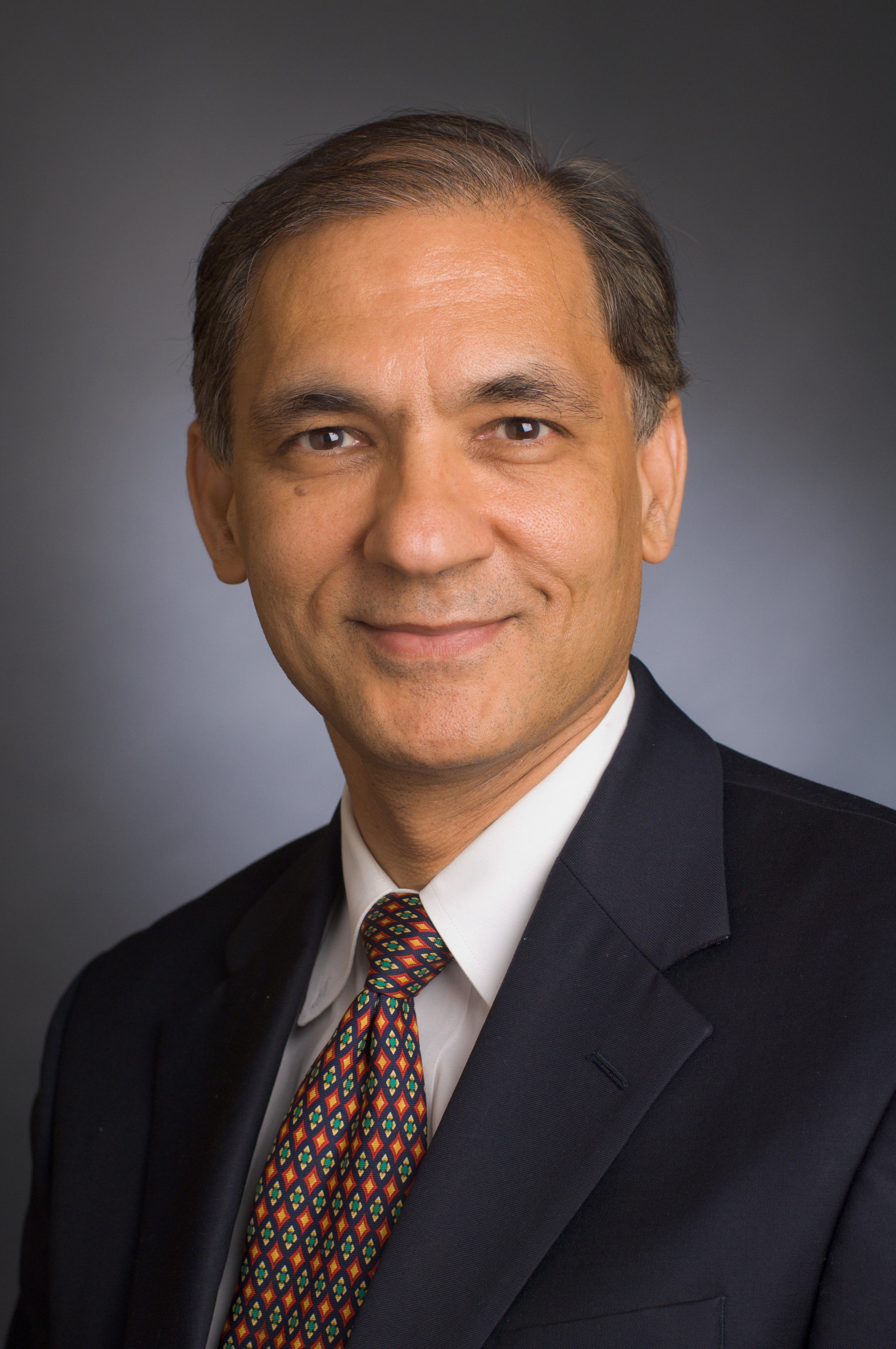
Dr. Nikhil C. Munshi
Nikhil C. Munshi, MD is Professor of Medicine at Harvard Medical School and the Kraft family Chair and Director of Basic and Correlative Science and Associate Director of the Jerome Lipper Myeloma Center at Dana-Farber Cancer Institute. He is a senior physician at the Brigham and Women’s Hospital and the Boston VA Healthcare system. Dr. Munshi's research has aimed to understand genomic changes in myeloma, elucidate molecular mechanisms driving the genomic instability in cancer; and improve diagnosis, prognosis, and therapeutics. His current research centers on integrative oncogenomics in myeloma and developing novel targeted therapeutics including antigen-directed and immune effector cell therapy/vaccine approaches. Dr. Munshi has over 500 peer-reviewed publications and has mentored over 70 junior faculty, post-doctoral fellows, and students. Dr. Munshi is the Chair and Immediate Past President of the International Myeloma Society. He has received several awards including the prestigious Waldenström Award for Most Distinguished Lifetime Achievement in Myeloma Research and the Dr. B.C. Roy National Award by the president of India.
-
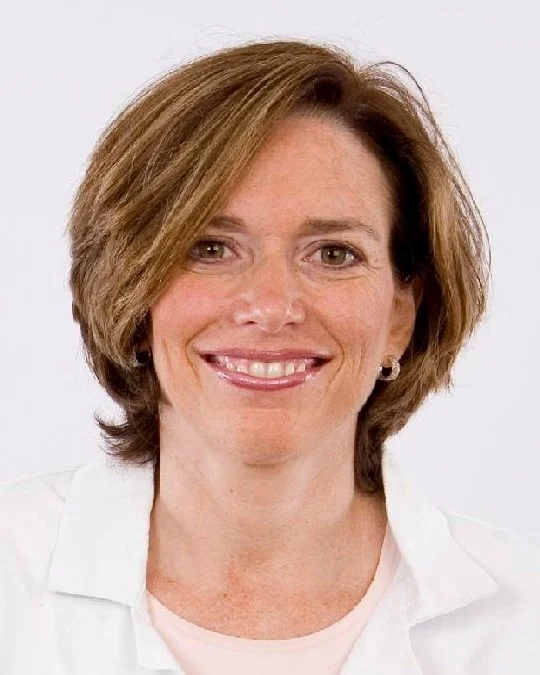
Dr. Selina Luger
Selina Luger is Professor of Medicine and an Attending Physician at the Hospital of the University of Pennsylvania as well as a member of the Abramson Cancer Center, University of Pennsylvania, USA. She obtained her medical degree from McGill University, Montréal, Canada before specializing in internal medicine, medical oncology, and hematology. Professor Luger’s clinical and research expertise is in Leukemia, myelodysplastic syndrome, myeloproliferative disorders, hematologic malignancies, and stem cell transplantation. She is a member of multiple professional and scientific societies, including the American Society of Hematology, the American Society of Clinical Oncology, and the Royal College of Physicians and Surgeons (Canada). She is also the chair of the Leukemia Committee of the Eastern Cooperative Oncology Group and an Associate Editor of Blood and serves as a reviewer for the Journal of Clinical Oncology, Annals of Internal Medicine, Blood, Bone Marrow Transplantation, and Leukemia Research. Professor Luger is well published in the medical literature, with more than 200 peer-reviewed articles in well-recognized international journals.
-
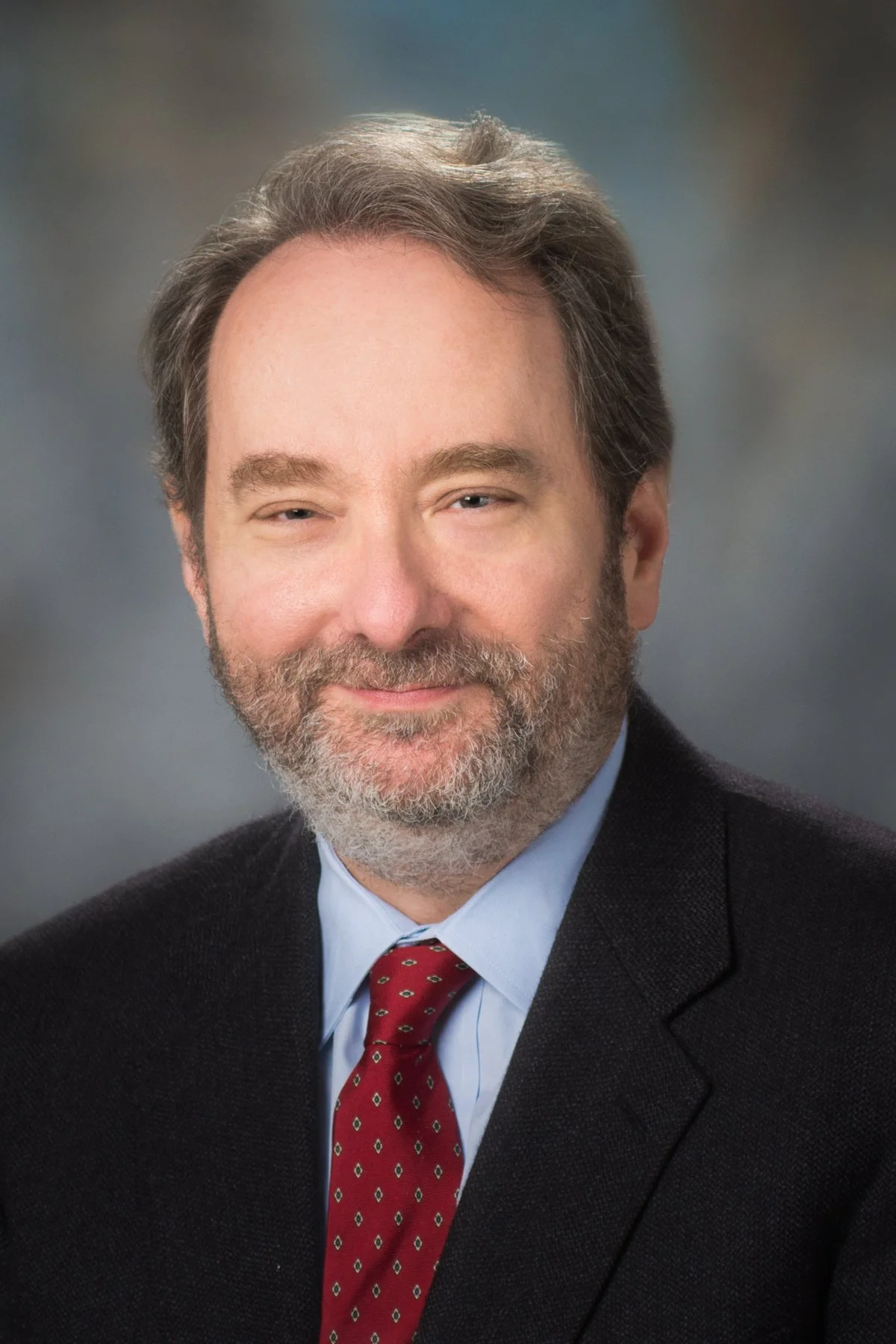
Dr. Robert Z. Orlowski
Dr. Robert Z. Orlowski holds the Florence Maude Thomas Cancer Research Professorship in the Department of Lymphoma/Myeloma, and also of Experimental Therapeutics, and serves as the Deputy Chair of the Department and Vice Chair for Myeloma Research at The University of Texas MD Anderson Cancer Center. In the laboratory arena, his focus is on identifying novel pathways and genes that contribute to myelomagenesis, validating novel therapies targeting these pathways, and understanding mechanisms of drug action and resistance. In the clinical arena, Dr. Orlowski has been among the leaders in translating novel laboratory findings into the clinic, and advancing the use of both small molecules and immunotherapies to improve patient outcomes and bring us closer to a cure for myeloma.
-

Dr. Gilles Salles
Gilles Salles, MD, PhD, is the Chief of the Lymphoma Service and holds the Steven Greenberg Chair at Memorial Sloan Kettering Cancer Center in New York since 2020. He is also a Professor of Medicine at Weill Cornell Medical College. Previously, he was a Professor of Hematology and Medicine at the University of Lyon and led the Department of Hematology at the Centre Hospitalier Lyon-Sud in France. Professor Salles earned his PhD in differentiation, genetics, and immunology, along with his medical degree, from Université Claude Bernard Lyon-1. He completed additional training in oncology and worked as a researcher at the Dana-Farber Cancer Institute at Harvard Medical School in Boston, Massachusetts, USA. Throughout his career, Professor Salles has demonstrated a strong interest in the clinical and biological study of lymphoma. His main focus has been on identifying and validating prognostic factors and designing clinical trials for B-cell lymphomas. He has been involved in researching and developing new therapeutic agents, including several targeted therapies, novel monoclonal antibodies, cellular therapies, and other immunotherapies in the field. He led large international studies evaluating treatment options for patients with follicular and diffuse large B-cell lymphoma. Previously, Professor Salles chaired the Lymphoma Study Association, a European cooperative group. He has served as an Associate Editor for the journal Haematologica since 2021. Professor Salles has authored over 500 publications, including articles in international peer-reviewed journals such as The New England Journal of Medicine, The Lancet, Cancer Discovery, Blood, Journal of Clinical Oncology, Lancet Oncology, and Haematologica.
-
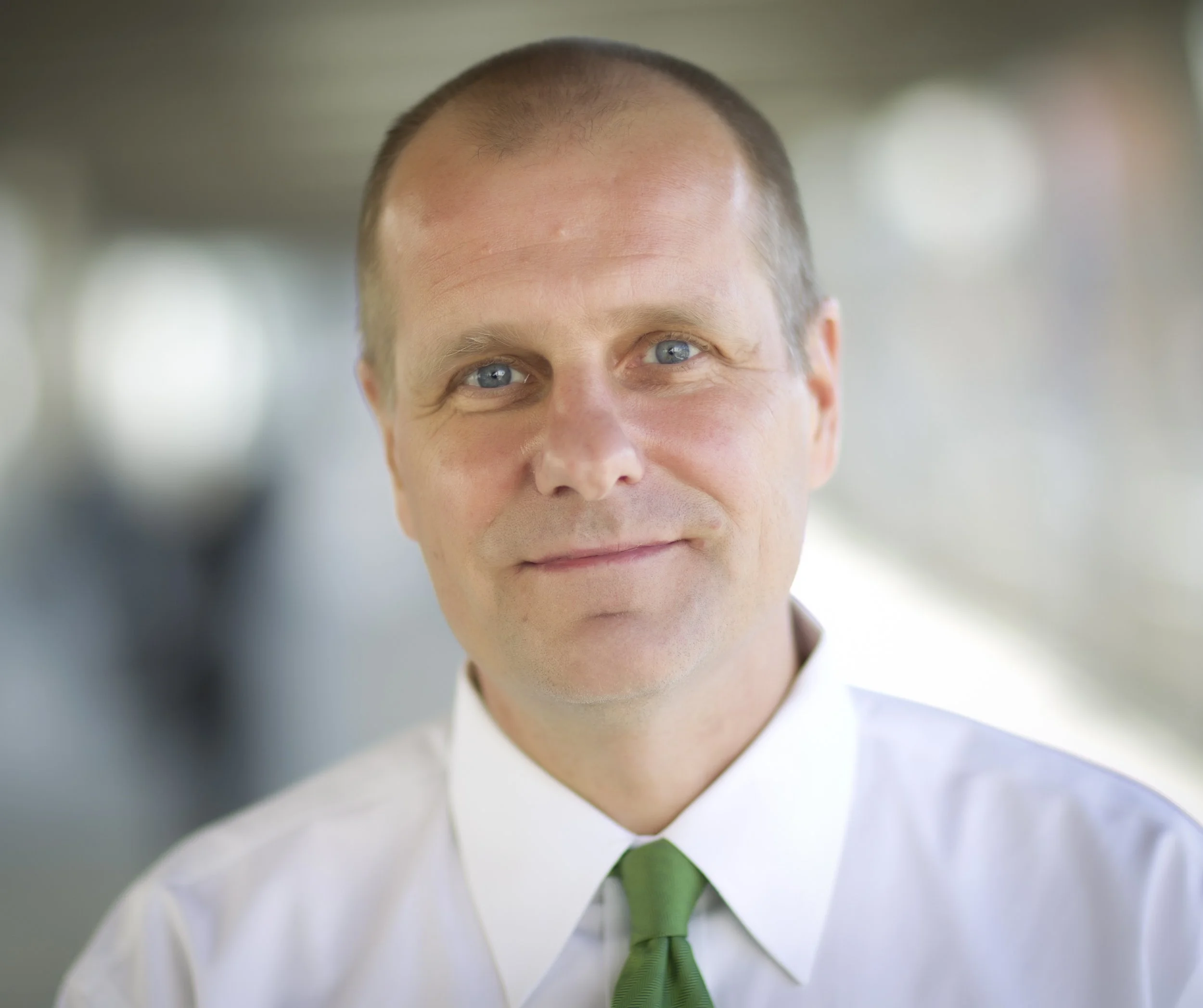
Dr. Stephan Moll
Dr. Stephan Moll received his medical degree from Freiburg University, Germany, including a one year of clinical training in London (Hammersmith Hospital and Institute of Neurology at Queens Square), and performed a pathology residency at the Institute of Pathology, University of Aachen, Germany. He completed an internship and residency in Internal Medicine and a Hematology-Oncology fellowship at Duke University Medical Center in Durham, North Carolina, and a one-year Clinical Coagulation fellowship at the University of North Carolina (UNC) in Chapel Hill. He hen worked as a coagulationist in the cardiology division of Humboldt University in Berlin, Germany, before being recruited to the University of North Carolina as a faculty member in the Department of Medicine and the Division of Hematology-Oncology where he has been since 1999, now at the rank of full professor. His clinical interest is coagulation, with a particular focus on thrombosis, thrombophilia and anticoagulation, and his research interests include clinical trials on new anticoagulants and better use of established anticoagulants. He takes a special interest in clinical-medical education of healthcare professionals, patients and the public. His three main professional goals for the next 5-10 years are to (1) enhance national and local patient and health care provider education activities on venous thromboembolism, (2) continue to build the UNC “Athletes and Blood Clot Program”, (3) support trainees in their career development in the field of coagulation/non-malignant hematology.
-
Dr. Neal Young
Neal S. Young is a leading authority in the field of bone marrow failure. His clinical and basic laboratory research has transformed our understanding of aplastic anemia and markedly improved medical therapy and subsequent patient outcomes. He pioneered immunosuppressive therapies and thrombopoietin mimetics that are now standard-of care alternatives to stem cell transplant. In addition to his work in defining immune marrow failure, he has made seminal contributions to virology, in the characterization of parvovirus B19 as a human pathogen; to genetics, in describing telomerase mutations in adults presenting with telomere biology disorders; and in genomics, with the discovery of VEXAS syndrome as a member of the family of somatic mutation diseases. He has been Chief of the Hematology Branch of NHLBI for many decades, and his group is known for its prospective clinical trials, bone marrow failure clinic, global interactions and collaborations, and fellowships in the laboratory and clinic that have trained dozens of hematology leaders in the United States, Europe, Asia, South America, and Australia. Young has published almost 600 original articles, dozens of reviews and textbook chapters, and a popular handbook of hematology. He has received peer recognition, including the E. Donnall Thomas and Beutler Awards from the American Society of Hematology. He has published unusual articles addressing the economics of modern scientific publishing and language confusion between journal editors and authors.
-
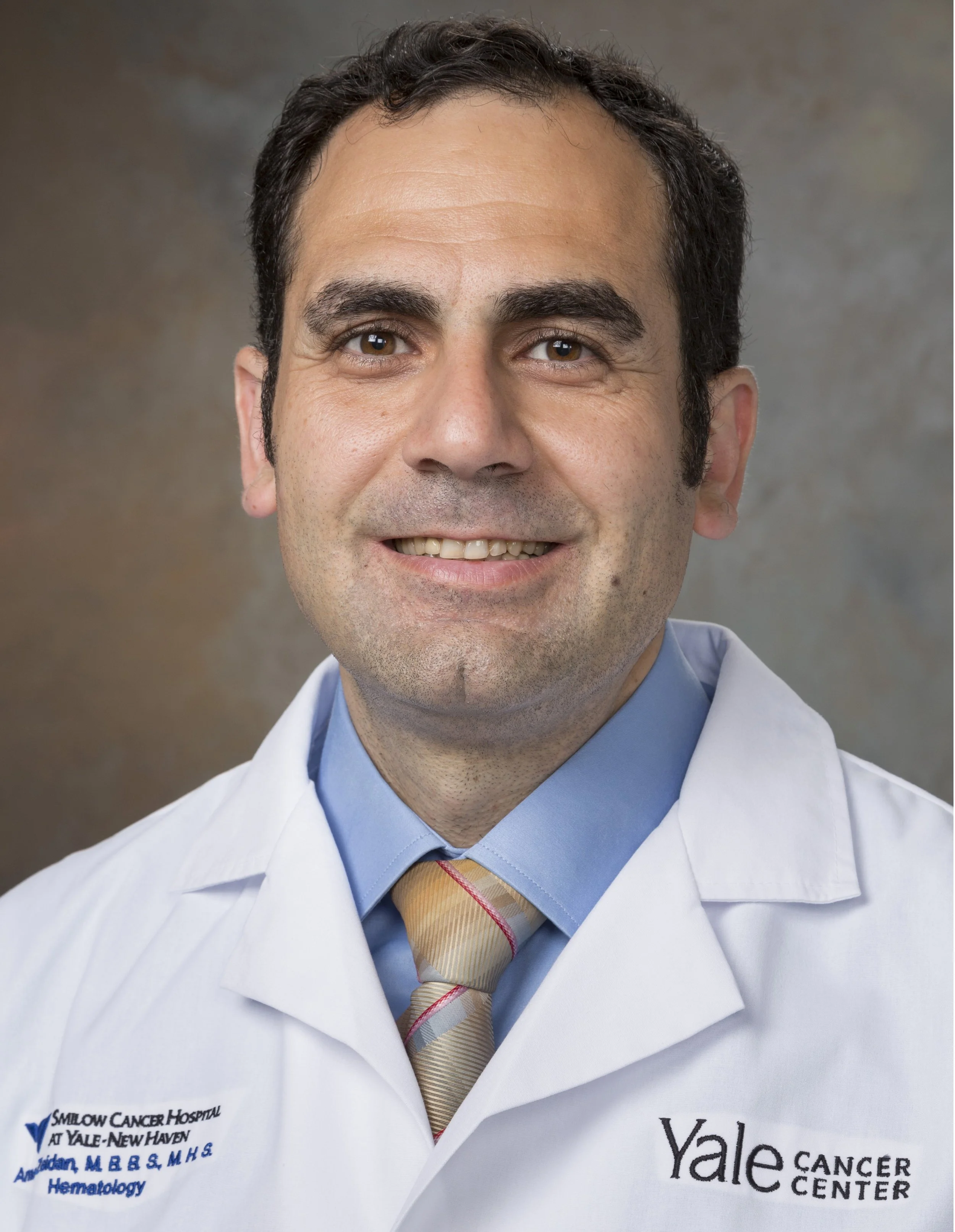
Dr. Amer Zeidan
Amer Zeidan, MBBS, MHS is a Professor of Medicine at Yale School of Medicine. He serves as the Chief of the Division of Hematologic Malignancies, Director of Hematology Early Therapeutics Research, and Assistant Director of the Clinical Trial Office for Hematology at Yale Comprehensive Cancer Center (YCC). He is also the leader of Leukemia and Myeloid malignancies Clinical Research Team. Dr. Zeidan obtained his medical degree with honors from University of Jordan, followed by residency in Rochester General hospital, Rochester, NY. He then completed a Hematology/Oncology fellowship and a clinical research fellowship in myelodysplastic syndromes (MDS) at Johns Hopkins University where he also earned a Master of Health Science (MHS) degree in Clinical Investigation. He joined Yale Faculty in 2014 where he has become an internationally recognized expert in myeloid malignancies. Dr Zeidan has been conducting research on the development of novel therapies for myelodysplastic syndromes and acute myeloid leukemia (AML) with a special focus on targeted and immunotherapy-based approaches.
Dr. Zeidan has and continues to serve as study chair and principal investigator of multiple investigator-initiated, cooperative group and industry sponsored clinical trials for myeloid malignancies. He previously served as the vice chair of the YCC Data and Safety Monitoring Committee (DSMC) and as chair of Protocol Review Committee (PRC). He has served on multiple steering committees and independent data and safety monitoring committees for randomized and registrational clinical trials. Dr. Zeidan is also a member of the MyeloMATCH Precision medicine initiative of the National Cancer Institute (NCI) for MDS and AML and is very active within the Cancer Therapy Evaluation Program (CTEP) and Early Therapy Clinical Trial Network (ETCTN) focusing on early phase clinical trials of novel therapies for myeloid malignancies.
Dr Zeidan has contributed to the approval of multiple drugs for myeloid malignancies including oral decitabine/cedazuridine (Lancet Haematology), luspatercept (NEJM and Lancet), and imetelstat (Lancet). Dr Zeidan has been active in organizing the scientific community on important initiatives including publishing a guidance on management of MDS/AML during the corona pandemic (Lancet Haematology) and revising the International Working Group response criteria for higher risk MDS (Blood Journal). He is also founder and chair of the International Consortium for MDS (icMDS) which has championed important initiatives such as harmonizing the WHO and ICC classification systems (Lancet Haematology) and standardizing eligibility for MDS clinical trials (Blood Journal). Dr Zeidan also delivered many invited talks at National and International meetings including grand rounds in several prestigious institutions.
Dr. Zeidan’s work has been recognized by several prestigious awards including the Leukemia and Lymphoma Society Scholar in Clinical Research award, the National Cancer Institute Cancer Clinical Investigator Team Leadership award, the AAMDSIF/Evan’s Foundation-MDS Clinical Research Consortium Fellowship award, the Tito Bastianello Young Investigator Award, the ASCO Young Investigator Award, and multiple other achievement awards. Dr. Zeidan also serves on the editorial board and is a reviewer of several important hematology and oncology journals. He is an author on more than 360 peer-reviewed publications and book chapters and more than 250 scientific abstracts.
In planning partnership with
